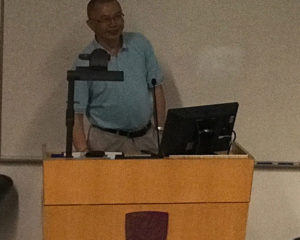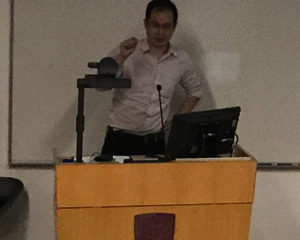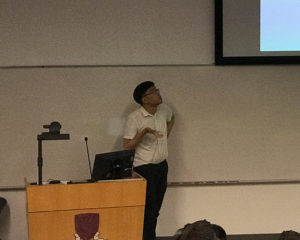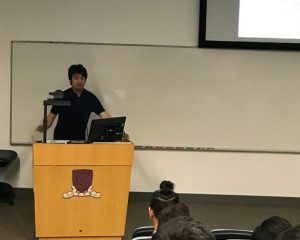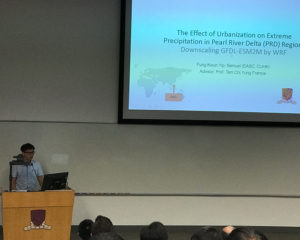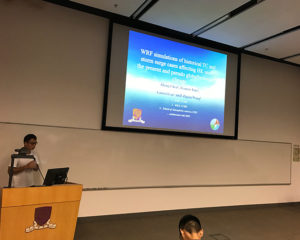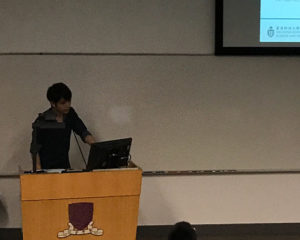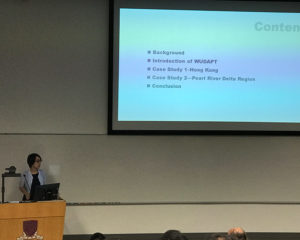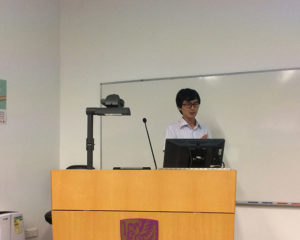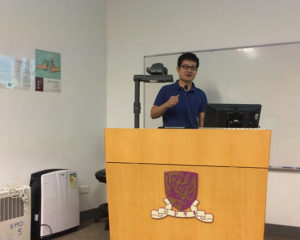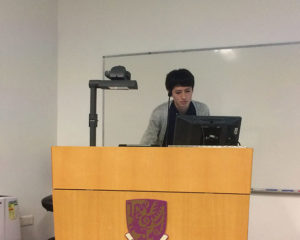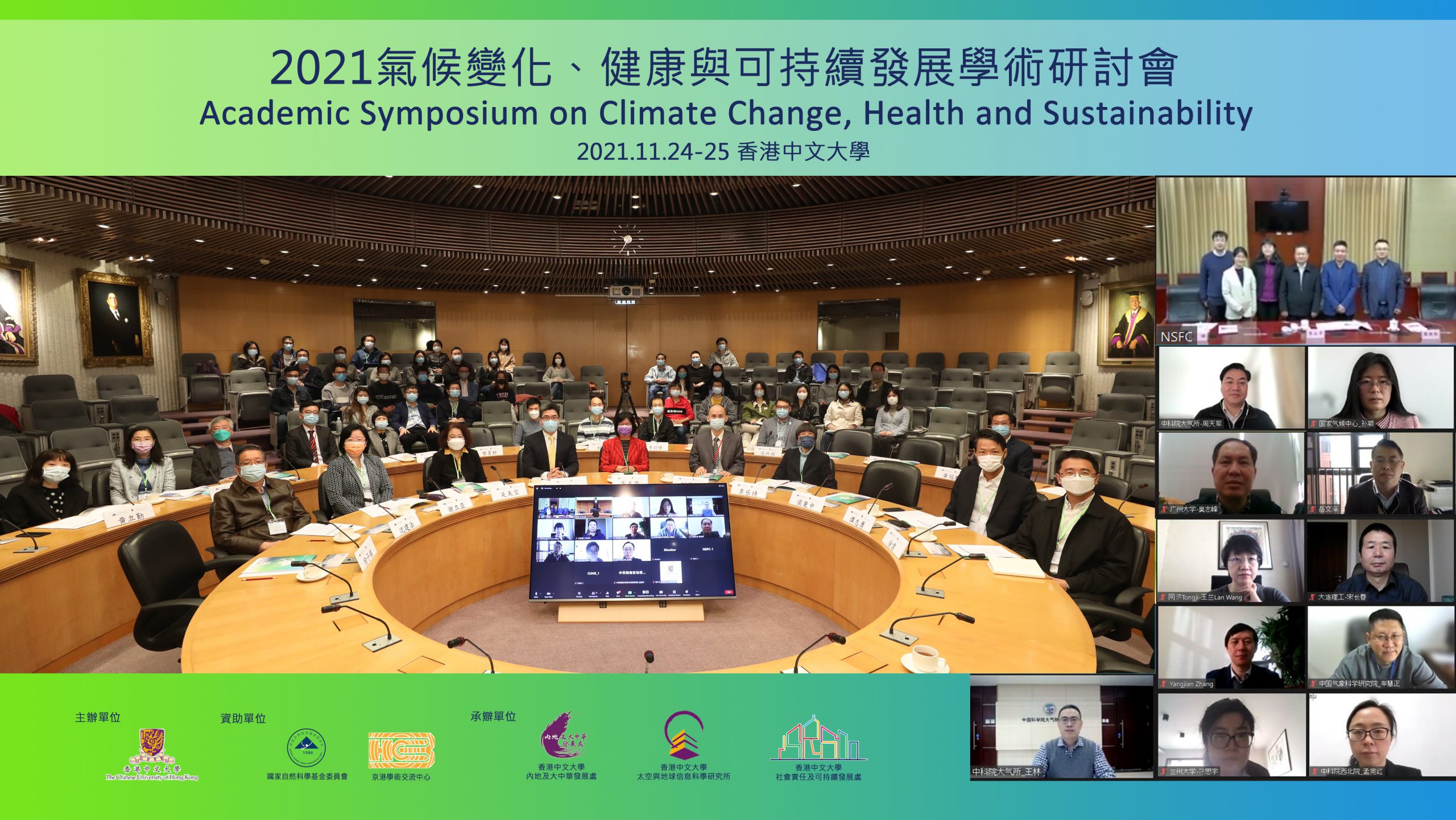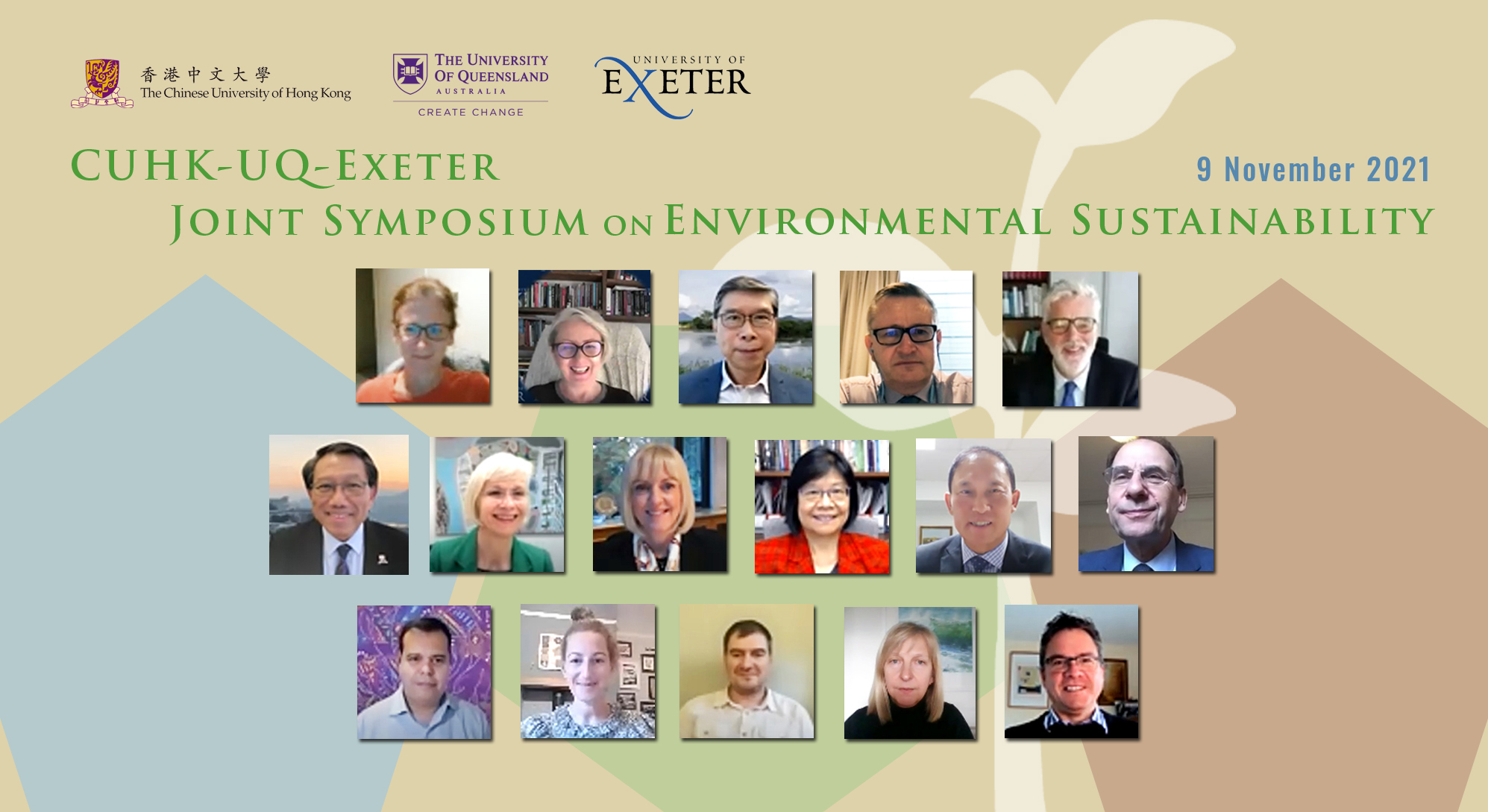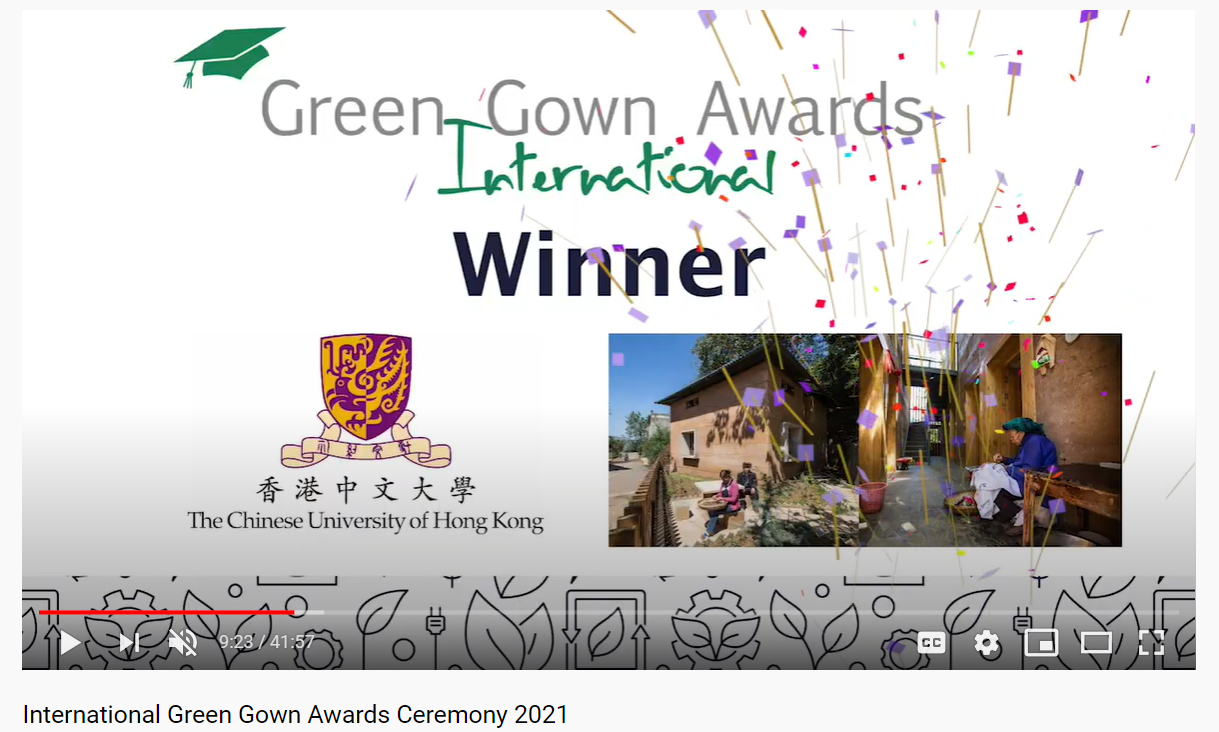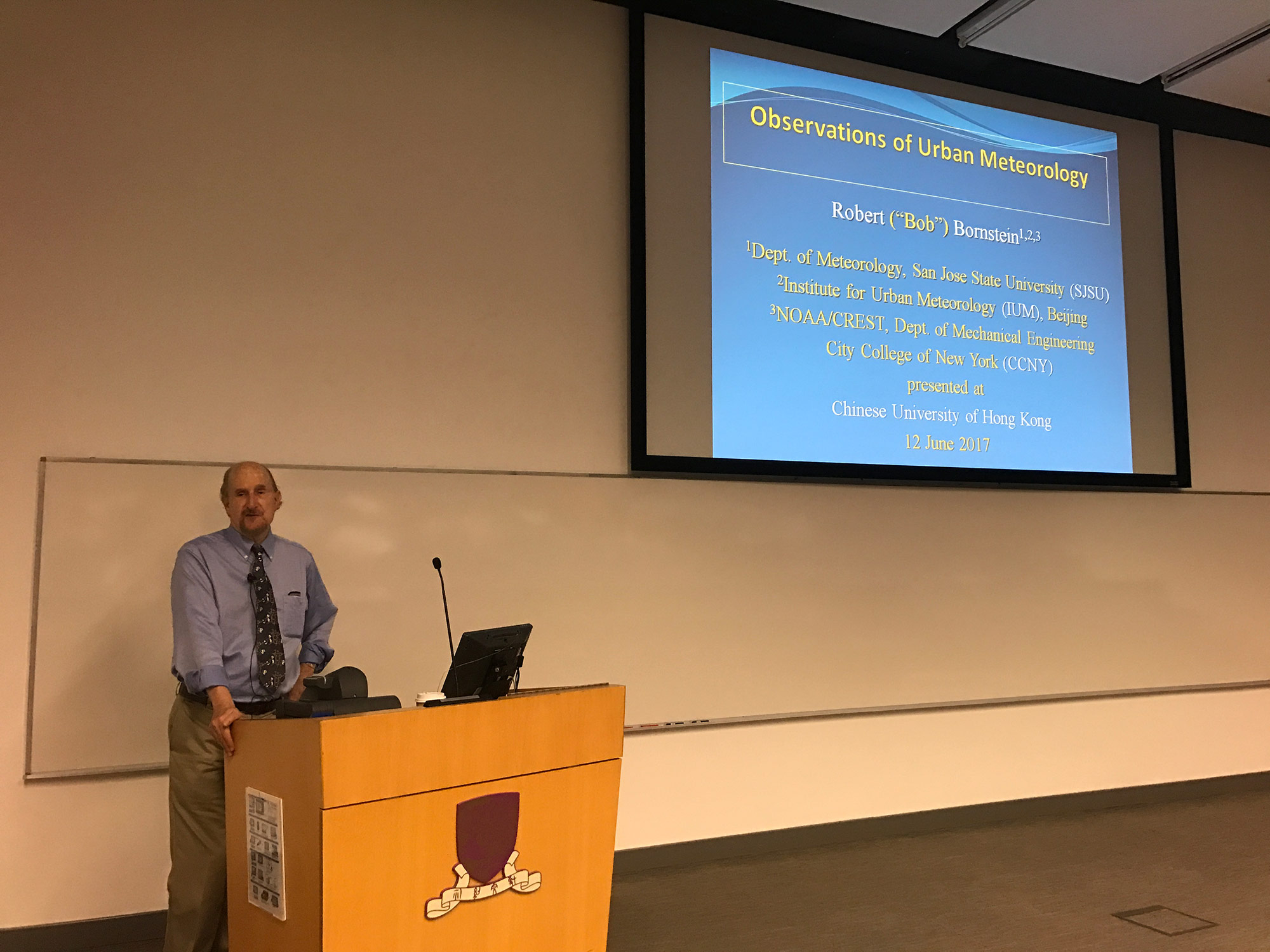
Workshop on Urban Meteorology by Professor Robert BORNSTEIN
The Institute of Environment, Energy and Sustainability (IEES) of The Chinese University of Hong Kong (CUHK), and the Department of Mechanical Engineering of the University of Hong Kong (HKU), jointly organized a workshop on Urban Meteorology at CUHK on 12 June 2017. The workshop was held during the visit of Professor Robert BORNSTEIN, Professor of Meteorology at Department of Meteorology and Climate Science of San Jose State University. Near 60 participants from overseas and local tertiary institutions gathered at this workshop to share knowledge and exchange views on Urban Meteorology and Urban Weather Research and Forecasting (uWRF) Modeling.
In the morning session, Professor Bornstein delivered two lectures on Observations of Urban Meteorology, and History and Applications of uWRF modeling. In the first lecture, Professor Bornstein introduced the background for impacts of urban environment on weather and climate. He then discussed the observations and analyses of mixing in Urban Planetary Boundary Layers, and the guidelines on the use of urban environmental parameters in the model simulations. He also presented the current progress of the Study of Urban-impacts on Rainfall and Fog/haze (SURF) Project in Beijing. In the second lecture, he reviewed the latest development of uWRF, and illustrated the application of uWRF in urban modeling studies by using case studies. He concluded the lecture by making suggestions on the future development of uWRF modeling studies.
In the afternoon session, 12 representatives from tertiary institutions in Hong Kong and Japan presented scientific findings from their research work at a sharing session moderated by Professor Yuguo LI, Professor and Head of the Department of Mechanical Engineering of HKU; and Professor Gabriel LAU, Director of IEES. Professor Li was also one of the speakers in the sharing session. Other speakers include researchers and postgraduate students from The Chinese University of Hong Kong, City University of Hong Kong, The Hong Kong Polytechnic University, The Hong Kong University of Science and Technology, Tohoku University, Tokyo Institute of Technology, and the University of Hong Kong. The sharing session covered the following topics: Understanding urban heat island circulations; Understanding urban daily temperature cycles; Predictability of urban-scale flows; Large-eddy simulation of non-isothermal flow around a building; Examining the change of extreme precipitation in PRD under urbanization by using WRF; WRF simulations of historical tropical cyclone cases affecting HK under the present and the globally warmed climate; Evaluation of uWRF performance in Hong Kong with the World Urban Database and Access Portal Tool (WUDAPT) dataset; Implementing the WUDAPT dataset for urban climate research; Role of reactive nitrogen chemistry in the photochemical and haze pollution in China; Case study of ozone episode events in Pearl River Estuary using WRF-Chem model; Analysis of regional climate changes considering the urbanization growth of high-speed railway station areas in Eastern Asia; and Prediction of heatstroke risk in the future based on mesoscale simulations by WRF.
#SustainableEnvironment #Conference #Workshop


